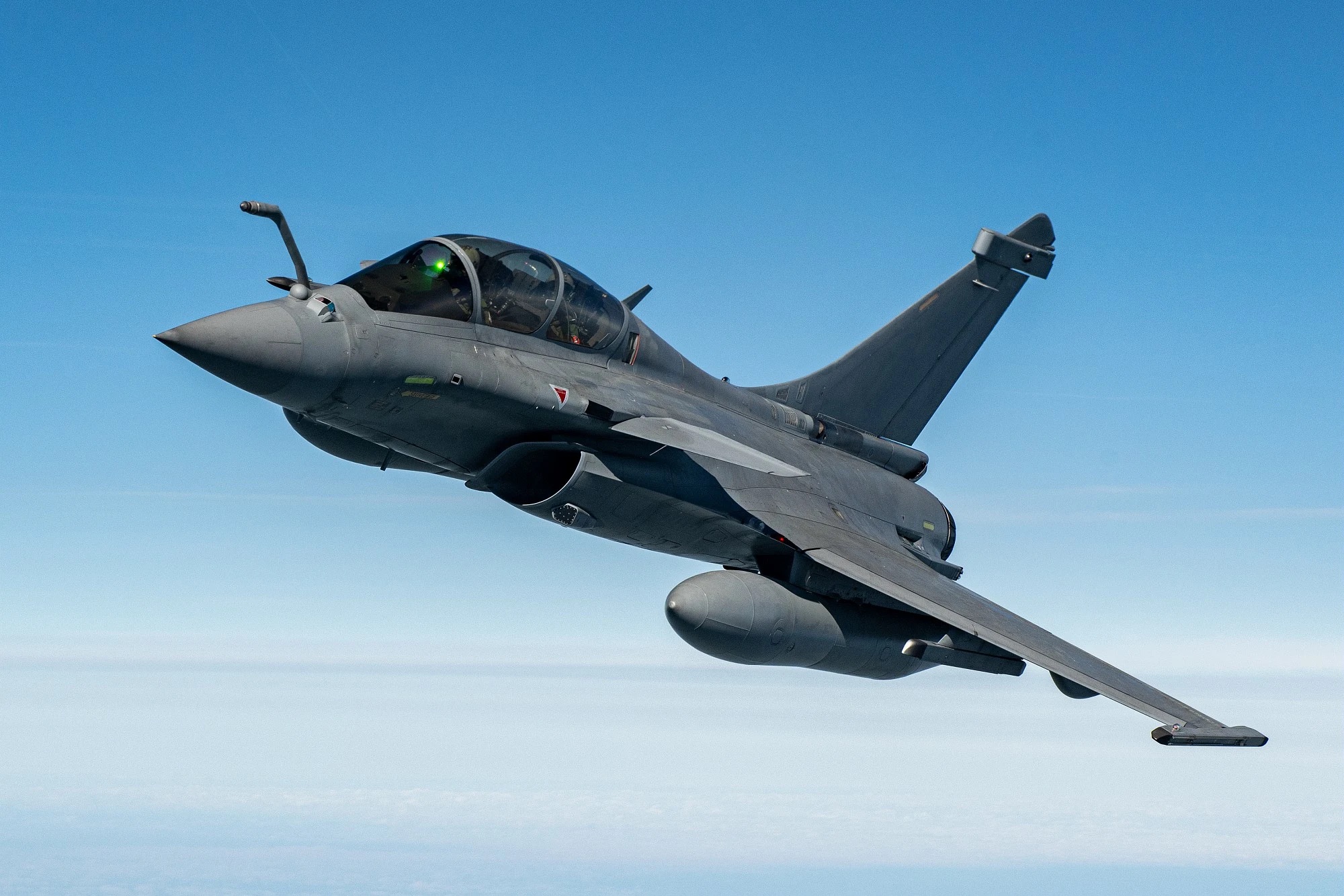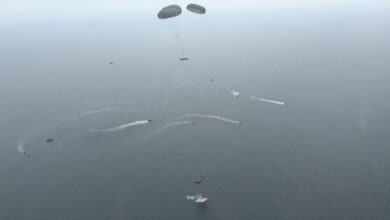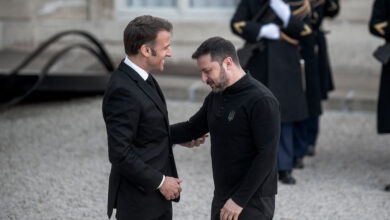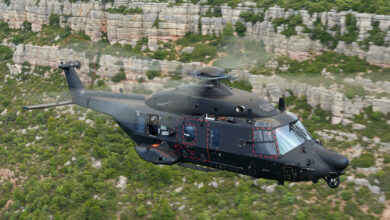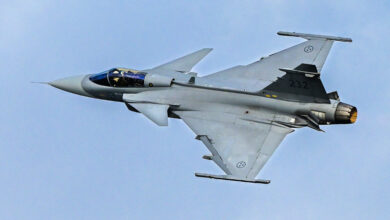Serbia signed a contract to purchase 12 Rafale warplanes from France’s Dassault Aviation on Thursday during a state visit by President Emmanuel Macron to Belgrade.
The widely anticipated deal will see Serbia receive nine single-seat and three two-seat jets by 2029, according to Dassault chief executive Eric Trappier.
The dozen multi-role fighter aircraft will help Serbia modernize its air force and replace aging Soviet-era combat jets.
“We are happy to become part of the Rafale club. We thank the president of France for making this decision and for enabling us to purchase the new Rafales,” Serbian President Aleksandar Vucic told reporters during the signing ceremony.
“The total value of the contract is 2.7 billion,” Vucic said without specifying the currency.
The Serbian president said the deal included logistics support and provisions for spare parts, while saying talks were ongoing about the type of armaments that would be provided with the planes.
Macron said the deal pointed to a “long-term alliance between our two countries within a stronger and more sovereign Europe” and provided a potential strategic opening.
“It is an opening towards a strategic change despite a lot of pressure, which must be underlined. It is real strategic courage and an opportunity for Europe,” said Macron during a press conference in Belgrade.
Serbia has long been close to Russia and China and purchased arms from both countries over the years, while relying on the Kremlin and Beijing for diplomatic backing over its dispute with Kosovo.
‘Political Protection’
The Rafale is a “multi-role” fighter that can be used to hunt enemy planes, strike ground and sea targets, and carry out reconnaissance.
The deal was just one of several agreements inked during Macron’s visit.
Macron arrived in Belgrade late Thursday afternoon, where he was greeted with a hug by Vucic and a traditional honor guard.
France has been strengthening its economic ties with Belgrade, with trade tripling in the past 12 years, according to Serbia’s finance ministry.
French company Vinci has been overseeing a years-long renovation of Belgrade’s Nikola Tesla airport, and French groups are set to build the capital’s first metro system and a state-of-the-art wastewater treatment plant.
Belgrade-based analyst Vuk Vuksanovic said Vucic likely saw the Rafale deal as crucial for ensuring France’s support in the future.
The president “believes that by purchasing these Rafales, which are an extremely expensive product of the French military and industry, he will buy President Macron’s favour and political protection,” Vuksanovic, a senior researcher at the Belgrade Centre for Security Policy, told AFP.
EU Lithium Deal
The fighter jet agreement marks the latest in a string of moves that has seen Serbia seek closer ties with Europe.
In July, the European Union and Serbia signed a deal to develop the country’s supply of lithium — seen as a crucial building block to achieve Europe’s transition to a green economy.
Belgrade reinstated the licenses for a controversial lithium mine this summer after revoking permits granted to mining giant Rio Tinto following demonstrations over environmental concerns.
Vucic has also acknowledged that Serbia had sold hundreds of millions of euros’ worth of ammunition to Western countries that has likely been shipped to Ukraine as Kyiv fights off invading Russian troops.
The sales come even as Serbia remains an outlier in Europe after refusing to join sanctions against Russia in the wake of its invasion of Ukraine in 2022.
The Balkan country has been reliant for years on support from the Kremlin and Beijing to prevent the United Nations from recognizing Kosovo as an independent state.
Serbia has been a candidate to join the European Union since 2012, but its prospects are seen as bleak without the normalization of relations with Kosovo, where it fought a war against ethnic Albanian insurgents in the late 1990s.
In a letter published by the Serbian press on Thursday morning, Macron said Serbia “fully belongs” in the EU.

